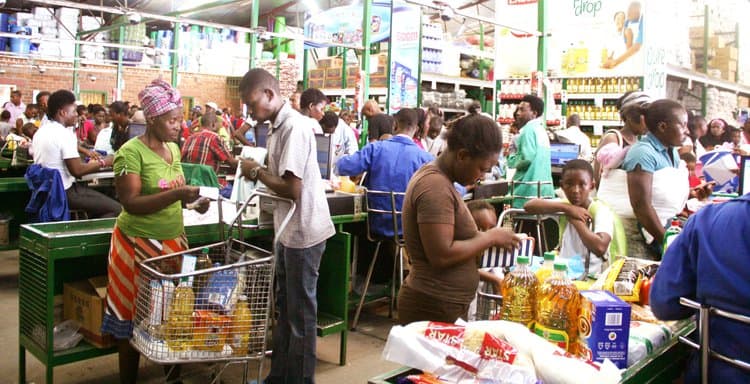MARONDERA – A Macheke school teacher was arrested on Friday charged with illegal trade in foreign currency after he unknowingly approached police detectives who were on surveillance for money traders attempting to exchange his ZiG bank balance for US dollars.
According to a police memo, Albert Nyambara, 37, a Waterloo Primary School teacher, got himself into trouble outside N Richards Supermarket in Marondera when he offered detectives from CID Commercial Crime Division Northern Regions his Cabs card to purchase some groceries in exchange for hard cash.
The memo reads in part: “Accused person approaching the detectives who were pushing a trolley loaded with various groceries which include tiggle naks assorted 50X24 grams, willards things 8X150 grams, baby soft tissues rolls white 2 ply 1X18, 2 Quire A4 papyrus FM Counter book X 1, Top Chef premium white rice 2X5 KG, Mazoe Orange Crush 6X2 Litres, Fizzi Cream-Soda 6X2 litres.
“On approaching detectives, the accused person indicated that he had some ZiG in Cabs Bank account and intended to swipe in exchange for US dollars at an offered rate of Zig 14.11 per US $1-00 and in addition, he offered US$5 as a token of appreciation.
“Accused person then gave detectives his Cabs Bank card serial number 588925071472080 and he supplied the pin number as 2011.
“Accused person then accompanied detectives to the till where they swiped for the groceries and he proceed outside the shop.
“Accused person waited outside the shop and was given a receipt of the groceries worth Zig 999.07. Upon receiving the receipt, accused person calculated the equivalent in US dollars and he said amounted to US$70,80.
“Detectives then gave the trap money to the accused person and subsequently arrested.”
For the alleged offence, Nyambara appeared Saturday before a Marondera magistrate who released him on summons.
For his defence, he hired lawyers from Makwanya Godfrey of Sakala Associates.
Since the introduction of the new gold backed ZiG, the state renewed its blitz on illegal money traders whose activities are common along some urban streets and outside major supermarkets.
Zimbabweans rely on informal traders to obtain hard currency to source for some goods and further access services offered exclusively in US dollars even by the government.
Banks have failed to meet the demand for foreign currency among citizens of a partially dollarized country.
Sourcing for hard currency among friends, relatives and street traders is so common that it is now regarded as normal practice in the economically troubled country.
Zimlive














